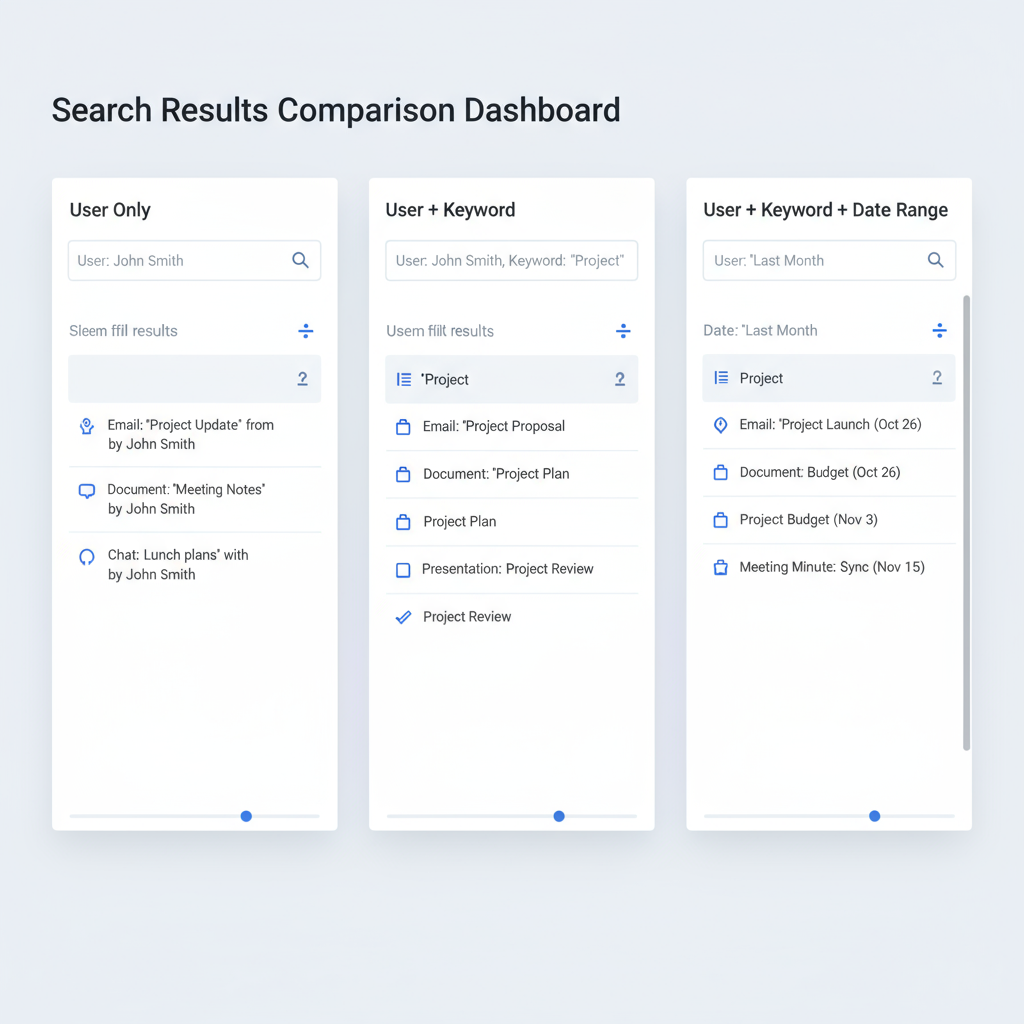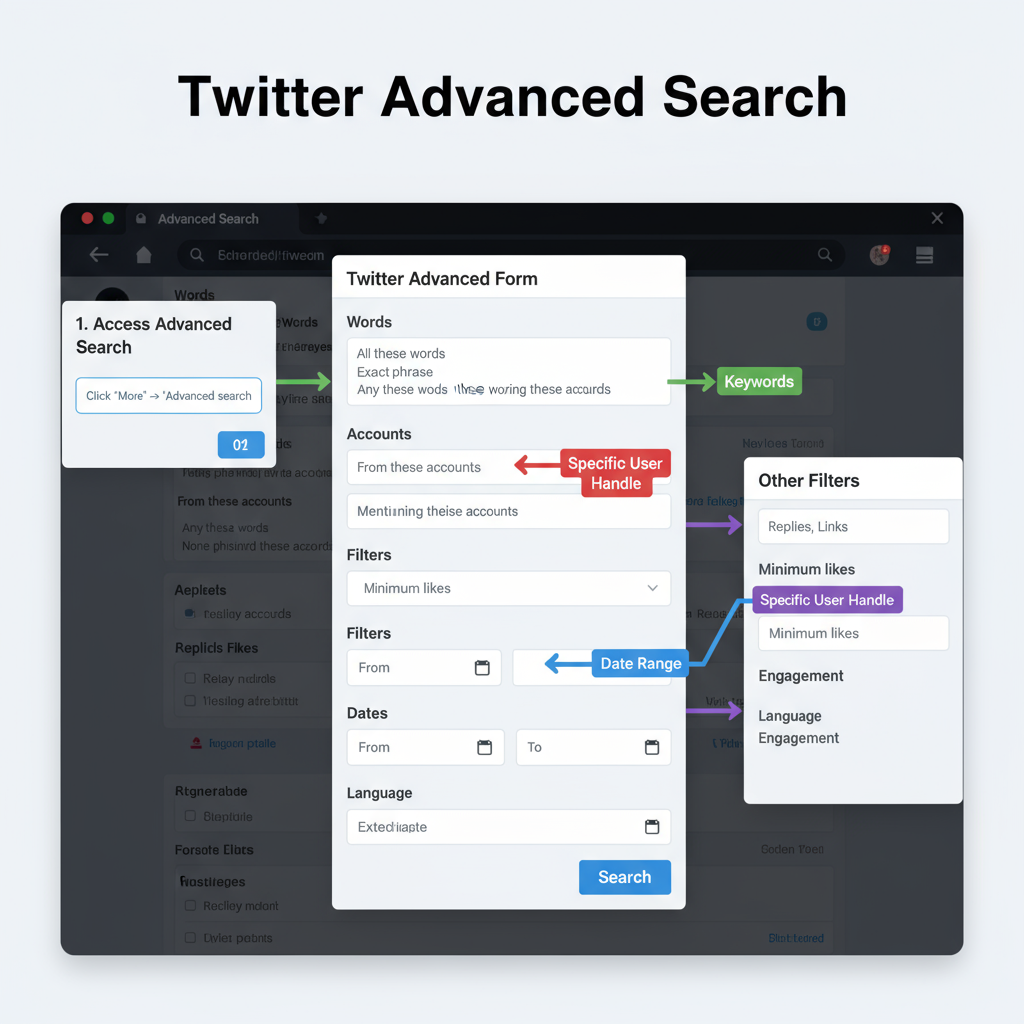How to Search Tweets from a Specific User on Twitter
Learn how to search tweets from a specific user on Twitter using advanced search operators, filters, and date ranges for precise results.

Introduction to Twitter Advanced Search for Specific Users
Searching tweets from a specific user on Twitter is a time-saving way to uncover precise, relevant information in the platform’s massive real-time feed. Whether you’re investigating a trending topic, verifying a public statement, or conducting market research, mastering Twitter’s advanced search operators will help you filter and analyze tweets efficiently. This guide explores multiple techniques — from the simple `from:username` operator to using the Advanced Search page — ensuring you can find exactly what you’re looking for.

Twitter provides search operators to filter results by account, keyword, hashtag, date range, and more. You can type these in the search bar or use the Advanced Search page’s form-based filters for a more visual approach.
---
Benefits of Searching Tweets by Specific User
Finding tweets by one account can save time and support various goals:
- Research and Analysis – Journalists, researchers, and academics can review chronological tweet histories to extract quotes or verify timelines.
- Audience Engagement – Brands and social media managers can look back at customer interactions to identify recurring themes.
- Fact-checking – Quickly verify when a statement was posted to assess accuracy, relevance, or potential misinformation.
---
Using Twitter’s Native Search Bar with `from:username` Operator
The quickest method requires just one operator:
from:usernameReplace `username` with the exact handle (omit `@`).
Example:
from:NASAThis lists all public tweets from the NASA account, most recent first.
---
Adding Keywords to Filter Results
You can refine results using keywords or exact phrases:
from:NASA MarsThis shows tweets from @NASA containing the word Mars. For exact matches, use quotes:
from:NASA "Artemis mission"This forces Twitter to match the phrase exactly.
---
Filtering by Date Range
Using the `since:` and `until:` operators pins searches to specific time frames:
from:username since:YYYY-MM-DD until:YYYY-MM-DDExample:
from:NASA since:2023-01-01 until:2023-03-01Here, results will include tweets from January 1, 2023 up to (but not including) March 1, 2023.
---
Step-by-Step: Using Twitter’s Advanced Search Page
The Advanced Search interface is ideal if you don’t want to memorize syntax:
- Navigate to Advanced Search
- Desktop: Visit `https://twitter.com/search-advanced`
- Mobile: Limited access via filter menus in the search section
- Fill in Details
- Words: Keywords or phrases
- From these accounts: Twitter handle without the `@`
- Dates: Specify with the date-picker
- Apply Filters to view results instantly

This interface allows you to layer multiple filters without typing operators.
---
Combining Multiple Filters with User Search
Mixing operators delivers laser-focused searches:
from:NASA #MarsFind all tweets by NASA tagged with #Mars.
from:OpenAI "ChatGPT" @elonmuskSee tweets from OpenAI mentioning Elon Musk and the term ChatGPT.
You can also filter by language (`lang:en`) or exclude words (`-keyword`) in the same query.
---
Searching Tweets from a Specific User on Mobile vs Desktop
| Platform | Native Search | Advanced Search |
|---|---|---|
| Desktop | Full support for search syntax in the web search bar | Complete UI at search-advanced |
| Mobile (app) | Operators work in the search bar | Partial filter menus; lacks full UI |
Tip: On mobile, bookmark complex search URLs so you can reuse them easily.
---
Third-Party Tools for Searching User Tweets
For analytics and bulk filtering, third-party tools are invaluable:
- TweetDeck – Real-time columns tracking `from:username` queries
- Twitonomy – Keyword and mention analytics, plus charting
- Social Bearing – Engagement-based sorting for tweets
These are especially useful for brand monitoring or competitive analysis.
---
Saving Searches for Future Access
To avoid retyping:
- Perform your search (via operator or Advanced Search).
- Click the three dots next to the search bar (desktop).
- Choose Save Search.
Your saved searches will appear in the dropdown next time.
---
Common Troubleshooting Tips
If you’re not getting expected results:
- Check Username – Must match exactly (case-insensitive, no `@`)
- Account Status – Deleted or suspended accounts won’t show tweets
- Privacy Settings – Private tweets require you to be an approved follower
- Date Format – Stick to `YYYY-MM-DD`
---
Ethical Use and Privacy Considerations
Even though public tweets are accessible, remember:
- Do not use searches for harassment
- Respect privacy for protected accounts
- Preserve context when quoting

Responsible use protects both your credibility and others’ rights.
---
Quick-Reference Search Operators Cheat Sheet
| Operator | Function | Example |
|---|---|---|
from:username |
Tweets from a specific user | from:NASA |
Keyword + from: |
User tweets containing a keyword | from:NASA Mars |
since:YYYY-MM-DD |
Tweets after a date | from:NASA since:2023-01-01 |
until:YYYY-MM-DD |
Tweets before a date | from:NASA until:2023-03-01 |
#Hashtag |
With a hashtag | from:NASA #Mars |
@mention |
Mentions a user | from:OpenAI @elonmusk |
| Quotes | Exact phrase match | from:NASA "Artemis mission" |
---
Summary & Next Steps
Knowing how to search tweets from a specific user empowers you to navigate Twitter’s vast database with precision. From basic syntax to combining advanced operators and leveraging third-party tools, you now have actionable methods to find exactly the content you need. Start experimenting with these operators today, save your most-used queries, and streamline your social listening and research processes.
Take action: Open Twitter, try `from:username keyword` now, and unlock highly targeted insights in seconds.



